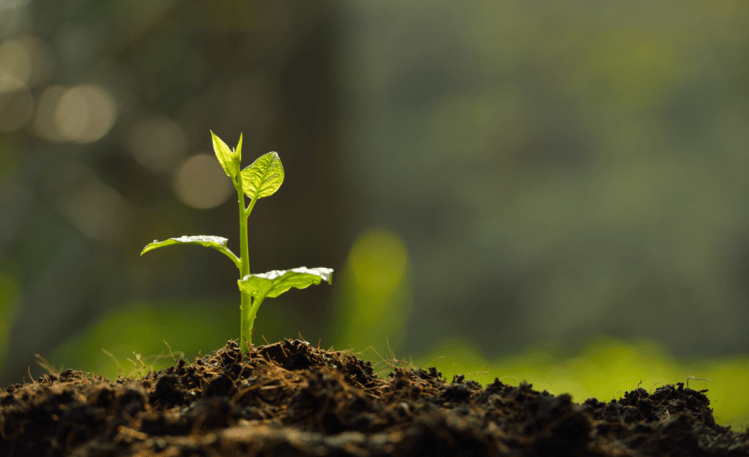Converting your garden to organic isn’t all that different from regular gardening methods. Just different ways of solving the same problems. You’ve probably noticed that organic produce tastes far better than traditional harvests. The only problem is purchasing organic can get quite expensive. Luckily organic gardening is cheaper than any grocery store not to mention you’re potentially avoiding a variety of harmful chemicals or synthetics. If you’re a veteran gardener or just dripping your toes, we’ll show you some of the different ways you can pursue an organic garden.
Creating your own organic fertilizers
Composting is a great alternative to purchasing organic fertilizers, these fertilizers can be rather expensive, and what’s the point when there are so many different methods of making your own at home. Composting is definitely the most popular method of maintaining rich nutrients in your garden and makes a great replacement for store-bought fertilizers. It’s super simple and means you’ll be recycling nearly all the natural matter your home produces.
Liquid Seaweed Fertilizer is another organic method of adding rich nutrients to your soil. If you live in close proximity to the ocean, you’re lucky enough to have an abundance of it. Fill a bucket to about three-quarters full and fill it up with the seaweed you’ve collected. Give the seaweed a good stir and allow it to sit for several weeks. Using multiple buckets or a large leak proof bin is recommended if you’ve got a large garden. Now pour the liquid mixture throughout your garden, pouring at the roots of your plants can be very effective.
Deterring pests the organic way
The hardest part of organic gardening is figuring out how to keep pests away from your precious garden beds. It can be a real challenge, especially if you’ve become accustomed to the variety of different pest sprays on the market.
Companion planting is a simple method that can keep pests far away from your succulent veggies. Companion planting involves growing pest deterring plants, either in close proximity or surrounding the plants you’re wishing to protect. It’s especially effective if a specific insect species is reeking havoc, you can find what plants deter that species and begin planting them appropriately. For example, if you’ve got an Aphid problem and they’re often chewing down on your tomato plants. You would want to plant chives or coriander surrounding or in close proximity to the tomatoes to deter the Aphids. Because both chives and coriander act as deterrents against Aphids.
Organic pesticides are another alternative you can try to maintain healthy plants. You can in fact purchase them but there are home alternatives that are just as effective. Herbs and strong scented plants make great methods of deterring the wrong type of pests. Onion and Garlic spray can be especially effective at keeping pests off your plants. Crush one clove of garlic and one onion. Mix them together with a quart of water before letting it sit for one hour. Then add 1 teaspoon of cayenne pepper and a tablespoon of soap mix. If kept in the fridge it should hold its potency for a few days. Generally, spray your plants every five to six days using this mixture.
Citrus oil and Cayenne spray is another alternative to the onion and garlic mix. Add around 10 drops of citrus oil, combined with one teaspoon of Cayenne pepper and a cup of water. Mix it well before using it as a spray. If you’re looking to purchase a highly effective organic insecticide, neem spray works very well but is more expensive then the two methods above.
Not all insects will cause you problems, you can recruit the good bugs to curb the rate of bad bugs. A good method is to create an ideal habitat for the right type of insects. Ladybugs, Green lacewings, Praymantis or ground beetles are most common of well-natured insects. Where you live will determine what bugs can make your garden a home, research insect species, and plant accordingly. If you’ve built a quality habitat but still having no luck attracting good insects. You can always purchase live insects and release them throughout your garden. Insect hotels are another quick and easy method that should increase the population of insect life.
A common problem is realising that your current harvest is less abundant than previous years. The reasons can vary on why but a common factor is failing to rotate your crops. Some non-organic methods can sidestep this problem in the short term, but if you’re an organic gardener yearly crop rotation is key to maintaining abundant harvests. Generally, you can split up your garden into four sections, leaf crops, fruit crops, root crops, and legumes. Each year you should rotate these four beds with the next plant type. This example is very general and you should adjust your rotations depending on your garden, the important thing is to rotate your crops every year!
This yearly rotation of your crops can first maintain healthy soil and keep it fertile. but it’s really effective at avoiding soil-borne diseases and soil-dwelling insects. If a certain pest is plant-specific, it makes it harder for this pest species to gain any traction when it’s food source is constantly moving.
In conclusion
Switching to organic in your garden isn’t a complex process. If anything it’s a new level of fun as you solve the same problems using organic methods only. There’s a ton of different organic gardening methods and tactics, it would be hard to name them all in one article. The methods mentioned above are just some of the most popular and effective ways for a successful organic garden.
Tristan is a passionate gardener from down under. He’s always interested in learning and sharing on the topics of gardening and sustainability. He runs the blog Sydney Garders but you can always find him on other publications such as farming secrets.



